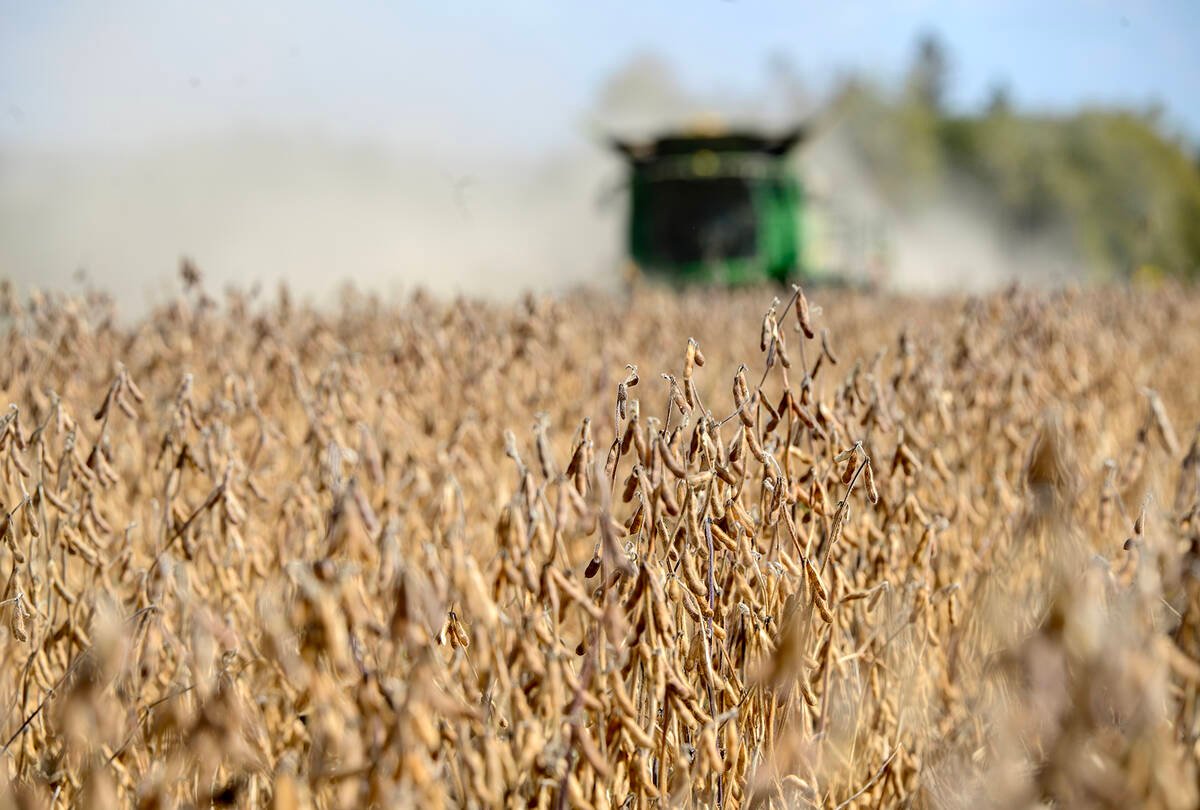Soybean farmers are paid by the bushel, but non-GMO and Identity Preserved (IP) soybean buyers are after something more: protein.
And they’re willing to pay for it.
WHY IT MATTERS: The increased global demand for plant protein could be an opportunity for Canadian soybean growers.
Growing soybeans that deliver both high yields and high protein could provide a valuable opportunity for Canadian growers.
A new $4.3 million soybean breeding initiative, combined with industry collaboration, is underway to turn this into reality.
The breeding program aims to develop early-maturing, high-protein, high-yielding, non-GMO IP soybean varieties suitable for Canada’s northern climates, including Manitoba and northern Ontario, to enhance on-farm value and strengthen Canada’s soybean value chain competitiveness.
This also enables farmers to access higher-value crops that meet the growing national and global demand.
“We want to future-proof food exports here in Canada, so we’ve set out to develop new soybean genetic lines that can compete with GMO varieties on yield and disease resistance performance, with value-added protein characteristics,” says Masood Rizvi, general manager of NRGene Canada.
“This powerhouse project will boost Canada’s soybean industry and open new doors for farmers.”
Protein Industries Canada is contributing 45 per cent of the three-year program’s funding, with the remaining 55 per cent matched by four progressive industry partners: NRGene Canada, Pulse Genetics, Hensall Co-op, and Yumasoy Foods Ltd.
“Breeding programs take time, but we recognize the need for these new soybean varieties now,” says Rizvi, adding the new varieties will be bred to deliver higher yields, resist soybean cyst nematode (SCN), and perform across diverse growing conditions, helping farmers close the yield gap between GMO and non-GMO soybeans.
The breeding program, launched in June 2025, will conclude in March 2028 at which point the commercialization and scaling-up production phase of the new soybean lines begins.
Unlocking soy value
“Ontario’s soybean growers, together with farmers across Canada, have a long-standing reputation for producing high-quality, identity-preserved soybeans that meet the highest international food standards,” said Lisa Campbell, senior director of programs with Protein Industries Canada.
“This investment keeps our farmers competitive in the global market, while also driving new economic opportunities here at home for both farmers and food processors.”
Specialty soybean markets are growing, particularly in Japan, Korea, and Southeast Asia.
According to Rizvi, Canadian soybeans hold significant untapped potential and, with global demand for plant-based protein rising alongside population growth, there’s a need for continued investment in non-GMO soybean varieties.

That’s why initiatives, like the industry-wide soybean breeding program, will be key to helping farmers boost production efficiently and sustainably while expanding Canada’s reach in emerging global markets.
Improving the domestic production of high-value food-grade soybeans is also expected to open new opportunities in Canada.
“What if we can enhance our Canadian economy or even become an exporter of premium soy food products too?” asked Rizvi, highlighting additional project goals that would extend the soy breeding program throughout the value chain.
As a program partner, Yumasoy Foods Ltd., based in British Columbia, will test the new high-protein lines and explore opportunities to utilize soybeans for domestic food production, expanding the potential to enhance the nutritional value of Canadian food-grade soybeans, and potentially offer new soy food options and create additional jobs throughout the food chain.
Future of soy
“This investment marks a pivotal moment for Canada’s non-GMO soybean sector,” says Rizvi.
“Merging advanced genomics with farmer-focused breeding to develop food-grade varieties that meet global demand and open high-value market opportunities from southern Ontario to northern Manitoba, along with expanding and securing soy food production here at home and across the globe.”
While the program’s outcomes will have far-reaching impacts — from local soybean fields to tofu processors in Asia — the focus is on increasing the value Canadian farmers can gain. Rizvi says he looks forward to the day when soybean farmers are rewarded not just for yield, but also for protein content, and can take pride in producing premium soybeans that are in high demand worldwide.
The post Breeding project aims to boost value for Canadian soybean farmers appeared first on Farmtario.














